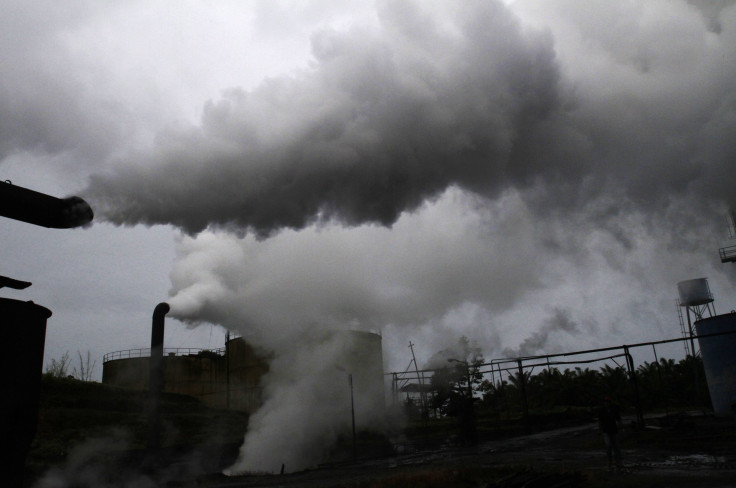Dodgy carbon credits result in 2nd ‘Fossil of the Day’ award to New Zealand

New Zealand got on Wednesday a second “Fossil of the Day” award for its reliance on dodgy carbon credits in the past, while the country insists it cares about the integrity of international carbon markets. On that day, New Zealand Climate Change Minister Paula Bennett said at the High Level Segment ministers’ meeting and at a side event that the country supports the development of high-integrity international carbon markets.
The UN Climate Change conferences give out the “Fossil of the Day” award every day to nations which have done its “best” to block progress in negotiations. The Climate Action Network (CAN) gave to New Zealand, the European Commission and Indonesia on Nov 15 the “Fossil of the Day” awards. CAN points out that while New Zealand talked of a big game on fossil fuel subsidies at COP22, it failed to live up to its own advice on the home front.
The New Zealand Youth Delegation (NZYD), in a statement, reveals that Wellington got the second award “for showing blatant hypocrisy in the face of fossil fuel subsidy reform.” The delegation says despite discussions on high-integrated international carbon markets, New Zealand plans to rely on benefits drawn from its historic use of “dodgy” carbon credits to meet its goal of 11 percent emissions below 1990 levels by 2013.
Erica Finnie, a member of NZYD, says, “Paula Bennett herself has admitted that the surrender of the millions of dodgy emissions reductions to meet New Zealand’s obligations under the Kyoto Protocol was not the ‘right thing to do.’” Finnie stresses those credits represent little actual emissions reductions, as shown by the Stockholm Environment Institute.
She adds the use of those dodgy credits in the past allowed New Zealand a surplus of “legitimate” credits now used to meet its 2020 emissions reduction target without taking any action on the domestic front. “New Zealand needs to up its game and cancel an equivalent number of carbon credits if the Government wants to prove their commitment to environmental integrity and transparency,” Finnie challenges Wellington.
Besides New Zealand, Australia and Austria got also the same awards on Wednesday. Bennett, on the same day, said New Zealand would extend ratification of the Climate Change Convention and Paris Agreement to include Tokelau, Radionz reports. She said at the first meeting of the Parties to the Agreement in Marrakech that the country is providing US$142 million (A$193 million) for climate-related air over the next four years, with the bulk going to the Pacific.
On Tuesday when New Zealand got its first “Fossil of the Day” award, New Zealand Climate Change Ambassador Mark Sinclair discussed the need to reduce fossil fuel subsidies. However, CAN notes that the country supports its oil and gas industry by providing tax breaks and financing scientific research to provide incentives for the industry to commit to explore in New Zealand waters.
According to World Wildlife Foundation New Zealand, in 2012/2013, the support was NZ$46 million (A$44 million). CAN accuses the New Zealand government of continuing to advertise its goal to hike the value of the country’s petroleum export 10 times to NZ$30 billion (A$28.6 billion) in 2025 from the current NZ$3 billion (A$2.86 billion) despite the general understanding that 80 percent of fossil fuels need to remain unburned to achieve the goals of the Paris Agreement.




















